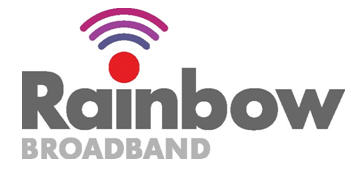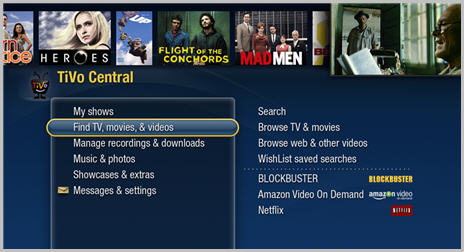-
Will eBay's Skype Write-down Hurt Joost and Other Video Players?
The news that eBay was going to write a portion of its Skype purchase did not really surprise many people, although its magnitude, $1.4B out of $2.6B paid still felt shocking. At the time of the deal, it seemed the only people who thought the deal made any sense were eBay's CEO Meg Whitman and her board. Whether they thought there was strategic sense to the deal or not, certainly Skype's founders Niklas Zennstrom and Janus Friis must have been grinning widely at the willingness of eBay to pay such a ridiculous premium for their company.This Times piece noted that:... revenue and earnings projections made by Skype executives before the sale to eBay turned out to be "a bit front-loaded" according to Mr. Zennstrom.
although its magnitude, $1.4B out of $2.6B paid still felt shocking. At the time of the deal, it seemed the only people who thought the deal made any sense were eBay's CEO Meg Whitman and her board. Whether they thought there was strategic sense to the deal or not, certainly Skype's founders Niklas Zennstrom and Janus Friis must have been grinning widely at the willingness of eBay to pay such a ridiculous premium for their company.This Times piece noted that:... revenue and earnings projections made by Skype executives before the sale to eBay turned out to be "a bit front-loaded" according to Mr. Zennstrom.Not to take anything away from the potential of Joost, the pair's much-heralded broadband video aggregator, but if you were considering making an investment in the company or any other in the video space, wouldn't this whole eBay-Skype affair make you cautious? Seeing such a gigantic writedown, and now the admission that the projections has to make prospective investors just a little more cautious about Joost, and all other video players as well.
I'm asked frequently, is there a bubble in the video space? I think the answer is that yes, investors are getting too enthusiastic, as they always do when they smell a transformative opportunity. The Skype writedown is a reminder to all investors in the space that being optimistic about broadband's potential is right, but keeping their sanity regarding valuations is critical. eBay just reminded all of us of the cost of not doing so.
Categories: Aggregators, Deals & Financings
-
Rainbow Broadband Shows Broadband Access Options Continue to Multiply
 I had a briefing with Rainbow Broadband Inc. this morning, a company which I wasn't familiar with, but which is offering an innovative wireless broadband solution in the NYC metro area. RBI again demonstrates how reliable broadband access is like oxygen to many businesses today, an absolute requirement to their success.
I had a briefing with Rainbow Broadband Inc. this morning, a company which I wasn't familiar with, but which is offering an innovative wireless broadband solution in the NYC metro area. RBI again demonstrates how reliable broadband access is like oxygen to many businesses today, an absolute requirement to their success.RBI is installing microwave links around NY, with plans to expand to Brooklyn and New Jersey soon and elsewhere in the U.S. eventually. They have at least 2 clear value propositions, first redundant connectivity to primary fiber connections, and second, broadband access to class B and C buildings, whose tenants might otherwise not be able to get anything better than a 1.5 mbps T1 service currently.
To put RBI in perspective, they're most popular service is a 10mbps connection that has a list price of $1,250/mo. 5mbps is $625/mo. While a lot of their business is still for data and voice applications, video is coming on strong. Consider all the broadband video companies located in downtown NYC alone, which must have reliable connectivity and it sure feels like RBI has a lot of room to grow.
Often lost in the hype of UGC, social networking, etc, is the undeniable fact that absent robust, economical broadband connectivity, the companies supplying these services wouldn't be viable nor would there be audiences in the first place who could gain access.
As video becomes an ever more important part of economic growth, especially in metro areas with creative communities, broadband infrastructure is vital. Isn't it great to know that bandwidth companies like RBI continue to flourish?
Categories: Miscellaneous
Topics: Rainbow Broadband
-
Google's "Video Units": Turbocharging Video Syndication
 Google/YouTube's formal announcement of its "Video Units" content syndication this morning is a welcome development following previous moves in this direction that did not seem to materialize (there was a test with MTV and also comments about doing same with partners Sony BMG and Warner Music Group). What Google'sAdSense has already done in distributing ads to the "Long Tail" of publishers, Google is now going to try replicating with video. It's a very smart move.
Google/YouTube's formal announcement of its "Video Units" content syndication this morning is a welcome development following previous moves in this direction that did not seem to materialize (there was a test with MTV and also comments about doing same with partners Sony BMG and Warner Music Group). What Google'sAdSense has already done in distributing ads to the "Long Tail" of publishers, Google is now going to try replicating with video. It's a very smart move.As I have written repeatedly, robust syndication is a crucial piece of the broadband video economy. That's because advertising is going to be the main business model for a long time to come. And the only way to make the ad business work is through massive traffic increases, and of course improved ad monetization methods.
There's no better way to scale up traffic than through turnkey syndication. Google's ability to harness AdSense as a combination video syndication engine and monetization platform for content providers (by eventually marrying video units to AdWords) is unmatchable by anyone else.
As Google expands this initiative, it will be simultaneously alluring and threatening to others. Trying to capture the same benefits without the same underlying technology infrastructure and far-reaching distribution network is going to be very challenging to replicate.
Take for example, Hulu, the News Corp/NBCU JV, meant to regain control over their broadcast TV programs. Hulu has been striking its own distribution deals and will no doubt monetize its traffic with a "feet-on-the-street" ad sales approach. While there are benefits to this approach to aggregate the biggest sites as partners, Google's one-stop syndication/monetization capability provides the turnkey, hands-off approach needed to gather up the all the rest of the market (i.e. the Long Tail).
Depending how Google chooses to split the revenues between AdSense partners and content providers, Google/YouTube could well become a dominant part of the broadband-centric video value chain that is now taking shape.
Categories: Advertising, Broadcasters, Video Sharing
-
Paid vs. Free, Where is the Grass Greener?
Two conversations I had last week, with executives at two separate independent video content companies, one based on a pay model, and the other on an ad-supported model, struck the same theme: the "grass must be greener" for other's model.
These conversations were illustrative of others going on across the video landscape today. Everyone's grappling with which model offers more profitability, stability and growth. At least for now, ad-supported appears to have the "greener grass".
Paid sites are struggling with the fact that so much video has come online in the past couple of years that the bar to get users to open their wallets moves higher each day. The question becomes, "what sorts of video are consumers truly willing to pay for when so much is now available for free?" Of course, the more free stuff there is, the less compelled users feel to pay, even to get something good. Thus a major struggle ensues for pay sites to generate sufficient volume to become profitable.
The rising supply of video makes life equally tough, if not tougher, on the ad-supported sites. Breaking through the noise with quality content is no simple trick. Great content is table stakes. I think the real differentiators are great marketing and distribution which leads to significant awareness, traffic and revenues. So skills like knowing how to create a viral wave, strike partnerships with portals that have real teeth, and syndicating to many smaller players, are all paramount. And that's all before the skills required to sell ads and actually generate revenue.
The grass will remain greener for ad-supported for some time to come. When broadband to the TV becomes widely adopted, Hollywood is willing to cannibalize DVD revenues, formats are further standardized and consumers are better acclimated to broadband delivery, the pay model is going to take off. The ad-supported model is no layup, but with the right ingredients, success is currently attainable.
Categories: Advertising, Downloads
Topics: Advertising, Downloads
-
I Got My Official Comcast-TiVo Beta Trial Invite This Week
 This week I heard from the folks at Comcast who are running the upcoming beta trial with TiVo. I'm officially on the list and should be getting a box soon. Hooray.
This week I heard from the folks at Comcast who are running the upcoming beta trial with TiVo. I'm officially on the list and should be getting a box soon. Hooray.As many of you are aware, Comcast has been on the cusp of kicking off this trial for some time now, which will let real users experience the joys of TiVo software running inside a Comcast digital set-top box. This will mark a milestone for Comcast in delivering a better user experience than the generic DVR feature that it and other cable operators rolled out a couple of years ago.
After hosting Jeff Klugman, TiVo's Senior VP, GM of its Service Provider and Advertising Engineering Division for a "fireside chat" at a cable industry conference last July, I became very bullish on the opportunity for TiVo to transform itself through these cable deals into a software and services powerhouse. In other words, long-term getting out of the high-cost, low-margin consumer device business.
Running a successful trial with Comcast is all-important to TiVo and they've been working for 2 years on this integration. Success will likely mean wide rollouts with Comcast, followed by #3 operator Cox (with whom TiVo already has a deal), and then others no doubt to follow. I'll be keeping you posted on my experience when I get the box. If it works as advertised it's going to be a killer device.
Categories: Cable TV Operators, Devices, Partnerships
-
Lifetime Debuts Programs on Yahoo, iTunes, How Long Will These Happy Faces Prevail?
 B&C carried word yesterday that Lifetime will be the latest cable network to eschew unveiling its new programs or seasons on air, preferring instead to go the online route. This follows similar recent moves by Discovery/TLC, FX (in partnership with cousin company MySpace) and others, with plenty, I suspect, yet to come.
B&C carried word yesterday that Lifetime will be the latest cable network to eschew unveiling its new programs or seasons on air, preferring instead to go the online route. This follows similar recent moves by Discovery/TLC, FX (in partnership with cousin company MySpace) and others, with plenty, I suspect, yet to come.For now, there seem to be happy faces all around the cable industry regarding these online premieres. Cable networks argue that online generates upfront buzz leading to higher awareness and ratings for on air. This in turn builds value in multichannel subscription services. This was the point that Bruce Campbell, Discovery's president of digital media made at the recent CTAM NY panel I moderated. Of course, networks are doing the right thing following audiences online, all the while continuing to proclaim that their traditional affiliates (cable and satellite operators) are their most important customers.
Maybe I'm missing something, but I doubt all these happy faces will prevail for long. My guess is that at some point next year the lights are going to go on in the cable operator community that the portals and other new distributors are getting access to programs that operators' monthly affiliate fees pay for in the first place. Of course gone are the days of cable exclusivity, but if and when operators flex their muscles and express their change of heart about online premieres, my bet is they'll stop.
Operators should know that, at some point, the law of "there's only 24 hours in a day" kicks in - so if someone caught the premiere online, they don't actually need to tune in for the on air debut. And of course, do cable operators really want to allow viewers to grow accustomed to seeing high-quality long form programming online and/or through portals?
I think we'll see lots more of this activity until the cable operators call "foul". In the meantime, operators would be smart to start getting some of these premieres on their own portals, to bolster their own online positions.
Categories: Cable Networks, Partnerships, Portals
Topics: Discovery, FX, Lifetime, MySpace, TLC
-
VideoNuze Goes Live
 It's official - after months of intense development, VideoNuze went live today. I'm very excited about this first version of the site, and am deeply indebted to many of you who have provided me tremendous feedback, insight and support on the way to today's launch.
It's official - after months of intense development, VideoNuze went live today. I'm very excited about this first version of the site, and am deeply indebted to many of you who have provided me tremendous feedback, insight and support on the way to today's launch.VideoNuze 1.0 accomplishes what I set out to do at launch - provide a high-value, user-friendly online publication and community for busy video executives seeking to keep up-to-date with the industry's vast array of news and better understand what it means to their businesses. The two primary components of the site, "Analysis" and "News Roundup", are already well-stocked with content and will grow rapidly over time. In addition, I have a full roadmap of features which will also be introduced in the coming months.
As with all online initiatives, VideoNuze is a work in progress and I welcome your feedback. Please have a good look around and let me know what you think. What works well? What's missing? What's broken? No comment or observation is too small, I invite them all.
Today's launch wouldn't be possible without the support of an incredible group of charter sponsors, so I want to acknowledge and thank them again. Each signed on when there was not so much as an official name for the effort. They made a bet on my concept - that an online publication that relentlessly focuses on informing and educating broadband video decision-makers would add real value to the market. I greatly appreciate their confidence.
These companies are all leaders in the fast-evolving video industry and I encourage you to take time to learn about how they can contribute to your company's success:
If you are interested in learning about VideoNuze sponsorships, please click here for more information or contact me.And if you'd like to know more about Broadband Video Focus, my firm's subscription market intelligence service, please click here.I look forward to hearing from you!Categories: Miscellaneous
Topics: Akamai, Atlas Venture, Digitalsmiths, ExtendMedia, ICTV, PermissionTV, thePlatform, Voxant
-
Music Videos are Another Example of Broadband's Ability to Create Unforeseen Revenues
 On my flight home last night I was thumbing through my hotel-provided USA Today and happened on this interesting piece about how record labels are transforming their music videos from promotional tool to a bona fide new revenue source. Chalk up another unforeseen win for broadband's ability to enable new business models.
On my flight home last night I was thumbing through my hotel-provided USA Today and happened on this interesting piece about how record labels are transforming their music videos from promotional tool to a bona fide new revenue source. Chalk up another unforeseen win for broadband's ability to enable new business models.Rio Caraeff, EVP of eLabs, Universal Music Group's digital division says that licensing its music videos to the likes of Yahoo, AOL, YouTube and others now generates over $20M/year and is growing briskly. Supporting a forecast of solid growth ahead, Ian Rogers, Yahoo Music's GM believes that viewership of music videos will expand by "10 to 100 times over the next one to two years."
According to comScore, Yahoo is the web's #1 music destination, pulling in 23.4M uniques in August. Caraeff also noted that streaming accounts for the lion's share of the revenue, with paid downloads of music videos still miniscule. He cites the best-selling download of all-time, a Justin Timberlake single as generating only 58K buys, which, at $1.99 apiece, adds up to less than $120K.
None of this is to say that music videos won't continue to be used as promotional fodder. But these nascent, growing licensing and ad-sharing revenues show broadband's power to mine content value that was previously inaccessible. Sports leagues, particularly MLB.com, have been masterful at this as well, driving successful broadband-only subscription businesses. I expect others to sprout up as well.
Categories: Music
Topics: AOL, eLabs, MySpace, Sony BMG, Universal Music Group, Yahoo, YouTube


